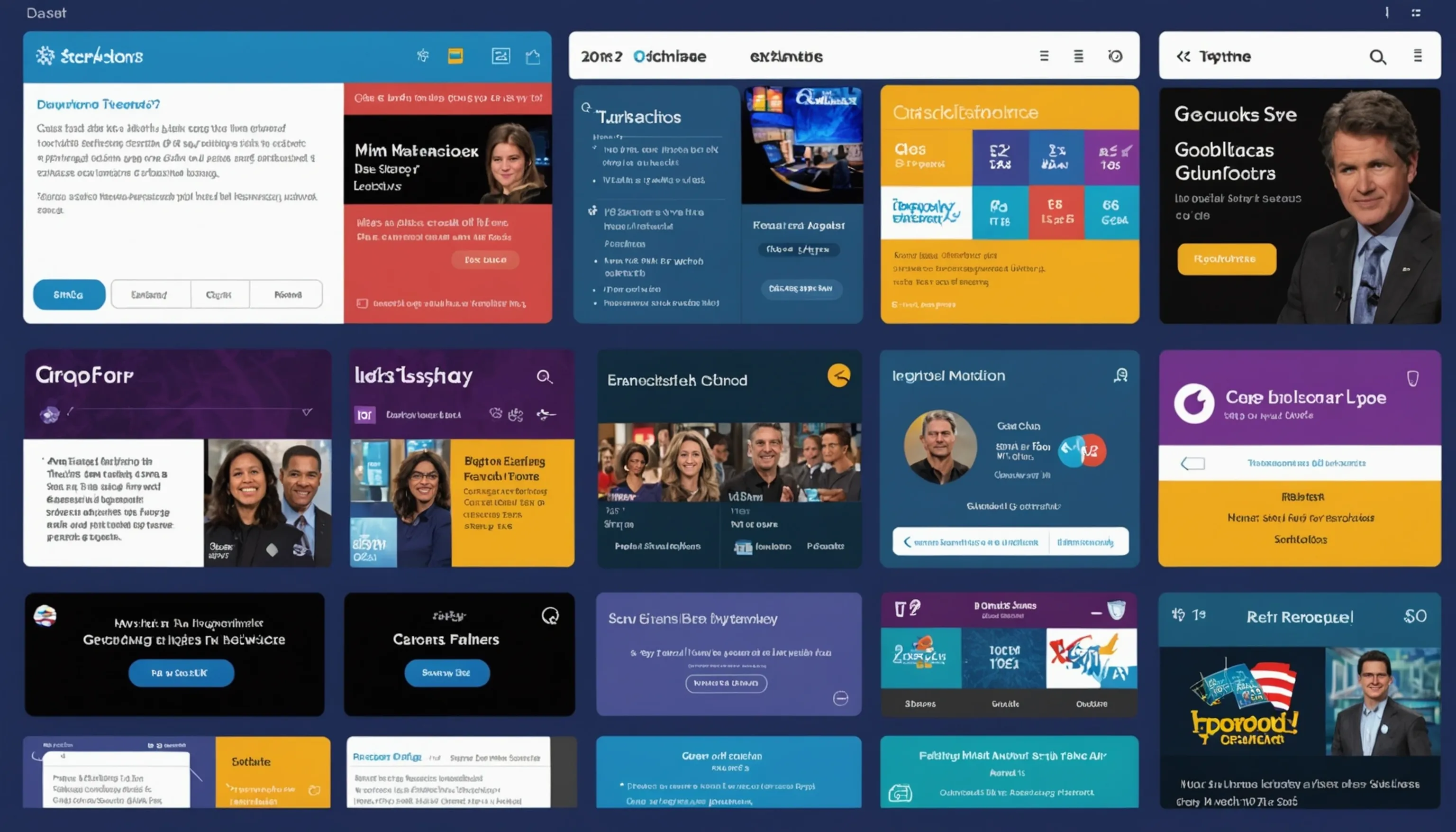Engaging Calculus Games for Teenagers
 HvWHenry van Wagenberg
HvWHenry van Wagenberg
Engaging Calculus Games for Teenagers
Engaging calculus games for teenagers can transform the learning experience, making complex concepts more accessible and enjoyable. These games often incorporate elements of competition and collaboration, encouraging students to think critically and apply their knowledge in a fun way.
For example, games like Calculus Jeopardy or Derivative Dash challenge students to solve problems while racing against the clock. Additionally, online platforms like Prodigy or Kahoot! offer interactive quizzes and challenges that reinforce calculus concepts. By incorporating these games into lessons, educators can enhance student engagement and foster a deeper understanding of calculus.
Why Use Games to Teach Calculus?
Using games to teach calculus offers numerous benefits that enhance the learning experience for students. First and foremost, games create an engaging environment that encourages active participation. When students are involved in a game, they are more likely to focus and absorb complex concepts, making calculus less intimidating.
Moreover, games foster collaboration and communication among students. Working in teams to solve problems encourages them to discuss strategies, share ideas, and support each other's learning. This collaborative atmosphere not only helps reinforce their understanding of calculus but also builds essential social skills.
Another significant advantage of using games in calculus instruction is the instant feedback they provide. Many games offer immediate results, allowing students to identify areas where they may need improvement. This instantaneous feedback loop promotes a growth mindset, as students can learn from their mistakes and adjust their strategies accordingly.
Additionally, incorporating games into the curriculum allows for differentiated learning. Teachers can tailor game activities to meet the diverse needs of their students, ensuring that everyone has the opportunity to succeed. For example, some students may benefit from visual aids, while others may excel in verbal problem-solving.
Finally, games make learning fun! By introducing an element of play, students are more likely to develop a positive attitude toward mathematics, which can lead to increased motivation and a greater willingness to tackle challenging topics like calculus. Overall, using games to teach calculus is a powerful strategy that can lead to improved outcomes in understanding and retention.

Top Calculus Games for Learning
Here are some of the top calculus games that make learning fun and effective:
- Calculus Jeopardy: This classic quiz game can be tailored to focus on specific calculus topics, challenging students to answer questions in a competitive format.
- Derivative Dash: In this fast-paced game, students race against the clock to solve derivative problems, reinforcing their understanding of rates of change.
- Online Calculus Platforms: Websites like Kahoot! and Prodigy offer interactive quizzes and challenges that engage students while covering essential calculus concepts.
- Graphing Battleship: A twist on the classic game, students use Cartesian coordinates to locate points, reinforcing their graphing skills.
Incorporating these games into lessons can significantly enhance student engagement and understanding of calculus.
Online Calculus Games
Online calculus games provide an interactive and engaging way for students to reinforce their understanding of calculus concepts. These games often combine fun with educational content, making them an effective tool for learners of all levels.
One popular platform is Kahoot!, where teachers can create custom quizzes that challenge students on various calculus topics. Students can compete against each other in real-time, making learning a social experience. The competitive aspect motivates students to pay attention and strive for improvement.
Another excellent resource is Brilliant.org, which offers a range of interactive courses and problems in calculus. The platform encourages problem-solving through engaging, hands-on activities that promote critical thinking.
IXL also provides calculus practice through adaptive learning. Students work through problems at their own pace, receiving instant feedback to help them understand their mistakes and learn effectively.
Finally, Prodigy is a game-based learning platform that allows students to practice calculus in a fantasy game environment. This unique approach makes learning enjoyable, as students earn rewards for solving math problems.
Incorporating these online calculus games into lessons can enhance student engagement, improve retention of concepts, and create a more dynamic learning environment.

Board Games that Teach Calculus Concepts
Board games can be an innovative way to teach calculus concepts while promoting teamwork and critical thinking. Here are some notable board games that effectively incorporate calculus principles:
Calculus Connect: This game encourages players to collaborate and solve calculus problems together. It features a variety of challenges, from derivatives to integrals, allowing students to apply their knowledge in a fun setting.
Math Fluxx: Although not solely focused on calculus, this card game evolves with every turn, introducing new rules and goals. Players must think strategically about mathematical concepts, including functions and limits, which can bolster their understanding of calculus.
Derivative Wars: This game is designed specifically for calculus students. Players compete to solve derivative problems, earning points for accuracy and speed. It’s a fun way to challenge classmates while reinforcing derivative rules.
Mathopoly: A twist on the classic Monopoly game, Mathopoly integrates math problems throughout the gameplay. Players must solve calculus questions to advance, making it a practical way to practice while having fun.
Incorporating these board games into the classroom not only makes learning calculus enjoyable but also helps students grasp complex concepts through interactive play, fostering a deeper understanding and appreciation for mathematics.
Creating Your Own Calculus Games
Creating your own calculus games can be a fun and rewarding way to enhance learning in the classroom. Start by identifying key concepts you want to cover, such as limits, derivatives, or integrals. This will help you design games that are both educational and engaging.
One simple idea is to create a calculus bingo game. Prepare bingo cards with different calculus problems or terms, and call out solutions or definitions. Students can mark their cards, reinforcing their understanding while having fun.
Another idea is to design a scavenger hunt where students solve calculus problems at various stations. Each solved problem leads them to the next clue, encouraging collaboration and critical thinking.
Using digital tools, you can also create interactive online quizzes or games using platforms like Kahoot! or Quizizz. This allows for real-time participation and instant feedback, making learning even more dynamic.
Simple Game Ideas for Teaching Calculus
Teaching calculus through simple games can significantly enhance student engagement and understanding. Here are some effective game ideas that can be easily implemented in the classroom:
1. Calculus Relay Race: Divide the class into teams and set up stations with different calculus problems. Each student must solve a problem before passing the baton to the next teammate. This encourages collaboration and quick thinking while covering various topics such as derivatives and integrals.
2. Function Match-Up: Create cards with different functions and their corresponding derivatives. Students must match the function to its derivative within a set time limit. This game reinforces their understanding of differentiation and promotes active participation.
3. Calculus Jeopardy: Set up a Jeopardy-style game with categories like limits, derivatives, and applications of calculus. Students can select questions of varying difficulty, earning points for correct answers. This format encourages friendly competition and helps them review key concepts.
4. Graphing Battleship: Adapt the classic battleship game by using a coordinate grid. Students must call out coordinates and graph functions, reinforcing their skills in graphing and understanding relationships between functions and their derivatives.
These simple yet effective game ideas can turn calculus lessons into engaging experiences, making complex concepts more approachable for students.
How to Incorporate Games into Calculus Lessons
Incorporating games into calculus lessons can transform the learning experience, making it more interactive and enjoyable. Here are several effective strategies to seamlessly integrate games into your calculus curriculum:
1. Identify Learning Objectives: Start by determining the specific calculus concepts you want to reinforce. This could include derivatives, integrals, or limits. Align your chosen games with these objectives to ensure they are educational and relevant.
2. Choose Appropriate Games: Select games that cater to the learning styles of your students. For instance, visual learners may benefit from graphing games, while kinesthetic learners might engage more with hands-on activities. Consider both board games and online platforms to diversify your approach.
3. Set Clear Rules and Goals: Before starting a game, clearly explain the rules and objectives to your students. Setting specific goals, such as solving a certain number of problems correctly, can help maintain focus and motivation.
4. Encourage Collaboration: Promote teamwork by dividing students into small groups. Collaborative games not only enhance learning but also build communication skills as students discuss strategies and solutions.
5. Debrief After the Game: After playing, hold a discussion to review the concepts covered. This reflection helps reinforce learning and allows students to express any confusion they may have encountered during the game.
By following these strategies, you can effectively incorporate games into your calculus lessons, enhancing engagement and deepening students' understanding of complex concepts.
